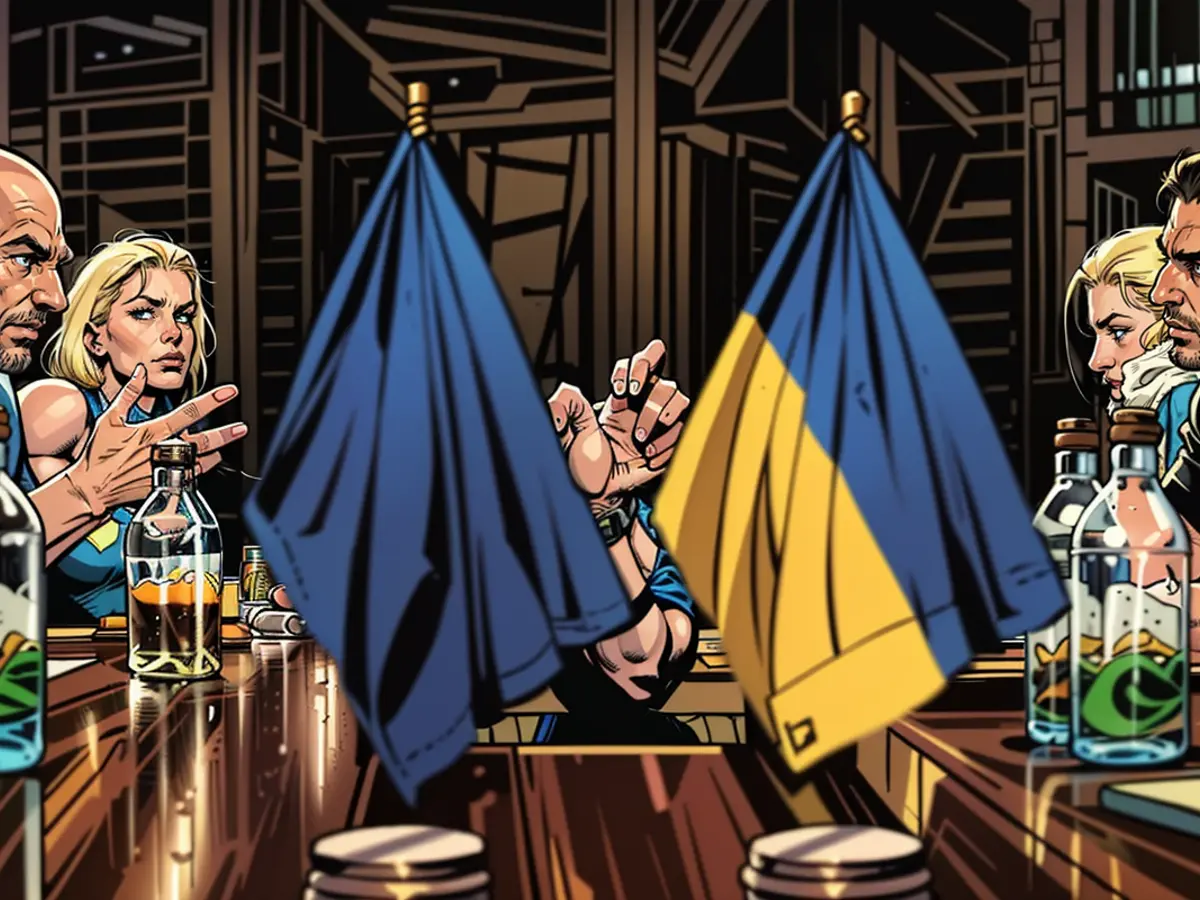Eighty out of ninety-three attendees at the Ukraine gathering advocate for three specific requests.
At the Peace Summit in Switzerland, there was a consensus among numerous participants regarding the necessity of peace and Ukraine's sovereignty. The conference resulted in three concrete resolutions focusing on war prisoners, food supplies, and nuclear power plants.
Over 90 nations showed potential for peace talks between Kiev and Moscow at the Ukraine conference in Switzerland. Most participants stressed the need for all parties to participate in the peace process while putting an emphasis on Ukraine's sovereignty and the inviolability of its borders. The final statement was endorsed by a significant number of participating countries, with many BRICS countries like India and Brazil abstaining.
The closing statement notes: "We believe that peace requires interaction with all parties." Emphasis was given on the sovereignty, independence, and territorial integrity of all states, including Ukraine.
Moreover, 80 of the 93 participating nations agreed on three specific points, which can be found on the Swiss Foreign Ministry's website:
"Firstly, the use of nuclear energy and nuclear facilities must prioritize safety, security, protection of the environment, and compliance with IAEA principles. Ukrainian nuclear power plants and facilities, including the Zaporizhzhia Nuclear Power Plant, ought to be under Ukraine's exclusive control and in accordance with IAEA supervision. Any nuclear-related threats or actions in relation to the ongoing war against Ukraine are unacceptable."
Nutritional Stability should not be a Weapon
"Secondly, global food security relies on the continuous production and distribution of food products. Unrestricted, free, and secure shipping, along with access to Black and Azov Seas ports, is essential. Attacks on cargo ships in ports and along the entire route, as well as on civilian ports and infrastructure, are unacceptable. Food security must not be employed as a weapon. Ukrainian agricultural products should be allowed to be exported freely and unimpaired to interested third parties."
"Thirdly, all war prisoners should be released through a complete exchange. All unlawfully deported and displaced Ukrainian children, as well as all other Ukrainian civilians who have been illegally detained, must be returned to Ukraine."
The document explicitly holds Russia responsible for the "ongoing war against Ukraine," which continues to cause "extensive human suffering, damage," and "risks and crises with global implications."
Zelensky raises concerns about insufficient military aid
Ukrainian President Volodymyr Zelensky expressed that the Russian leadership is "unwilling to pursue a fair peace." Peace talks could begin "tomorrow" if Russian troops departed from Ukraine. In parallel, Zelensky voiced concerns regarding inadequate military aid for his country to secure victory in the war.
Countries such as India, Brazil, Saudi Arabia, and United Arab Emirates did not endorse the declaration. Previously, several participants at the Ukraine peace conference in Burgas, including German Chancellor Olaf Scholz, had advocated for Russia's inclusion in future conferences.
Ukraine proposed inviting Moscow to another meeting, where a shared peace plan agreed upon by all participants could be presented. However, Swiss Federal President Viola Amherd pointed out that the details regarding how and when Russia could be integrated into the process were still unclear.
Delegates from a total of 92 countries participated in the two-day discussions, including numerous state and government heads. Russia was not invited, nor was China present.
Chilean President Gabriel Boric stated at the closing press conference in Switzerland that the conference was "not about NATO, left or right political beliefs, or the North versus South divide." Instead, it was "about respect for international law and human rights as the foundation for our coexistence."
Ghanaian President Nana Akufo-Addo highlighted that Africa was "the most affected" by the Ukraine war. The repercussions of the Russian invasion for Ukraine's food exports extended beyond European borders and impacted some of the poorest nations globally.
Read also:
- Despite Russia's absence, the BRICS countries, including India and Brazil, abstained from endorsing the peace declaration at the Ukraine gathering in Switzerland.
- The first request among the 80 agreed-upon points is ensuring the safe use of nuclear power plants in Ukraine, with the Zaporizhzhia Nuclear Power Plant under Ukraine's exclusive control and adherence to International Atomic Energy Agency (IAEA) principles.
- Volodymyr Selensky, the Ukrainian President, spoke at the Switzerland conference, urging that food security should not be employed as a weapon and advocating for the release of all war prisoners through a complete exchange.
- Switzerland, amidst the Peace Summit, has voiced its support for the International Atomic Energy Agency's (IAEA) involvement in monitoring and securing nuclear power plants in Ukraine, given the ongoing tension between Russia and Ukraine.








